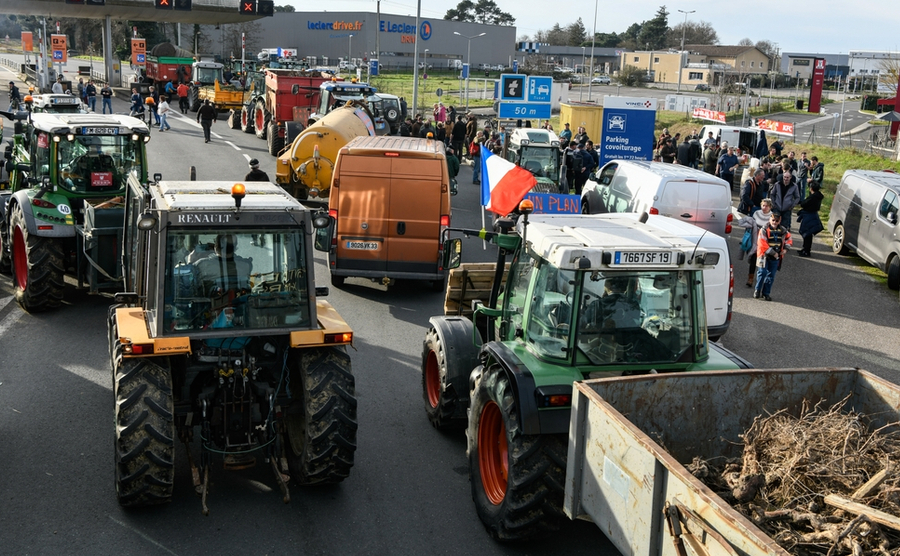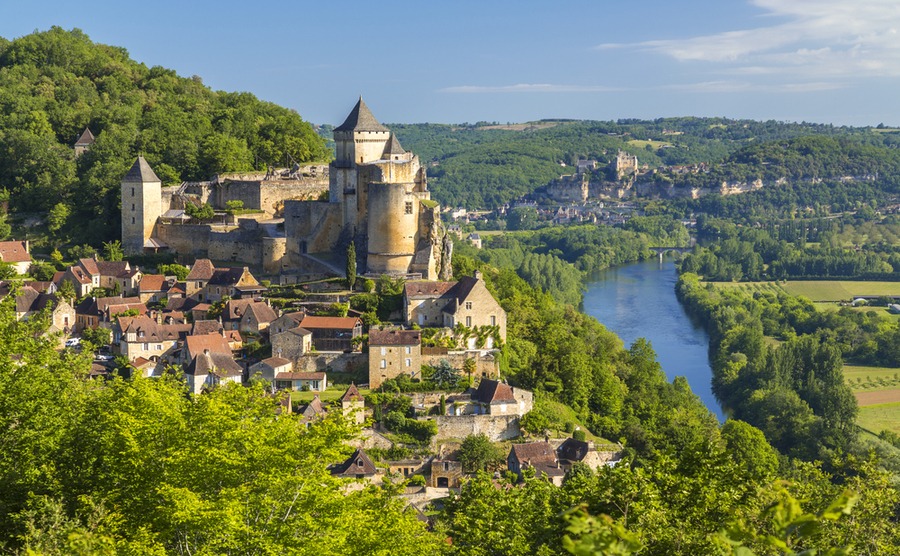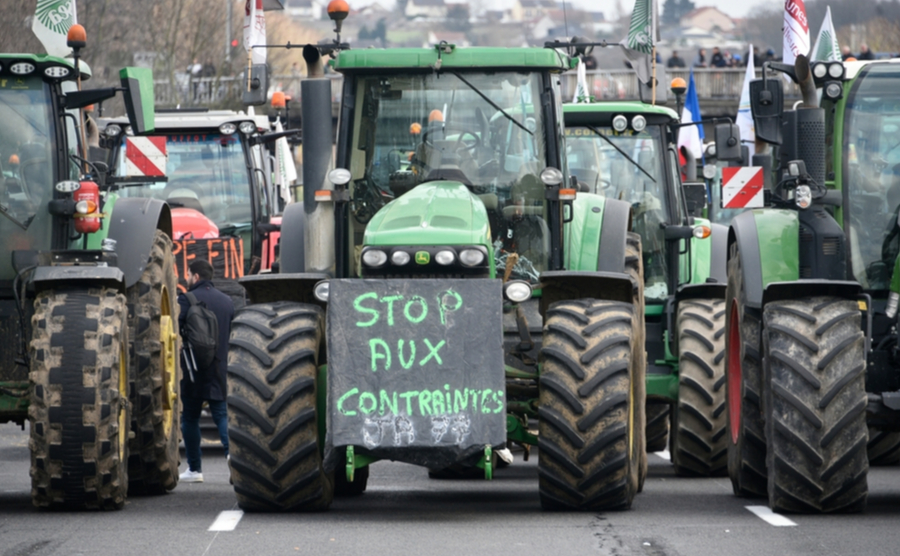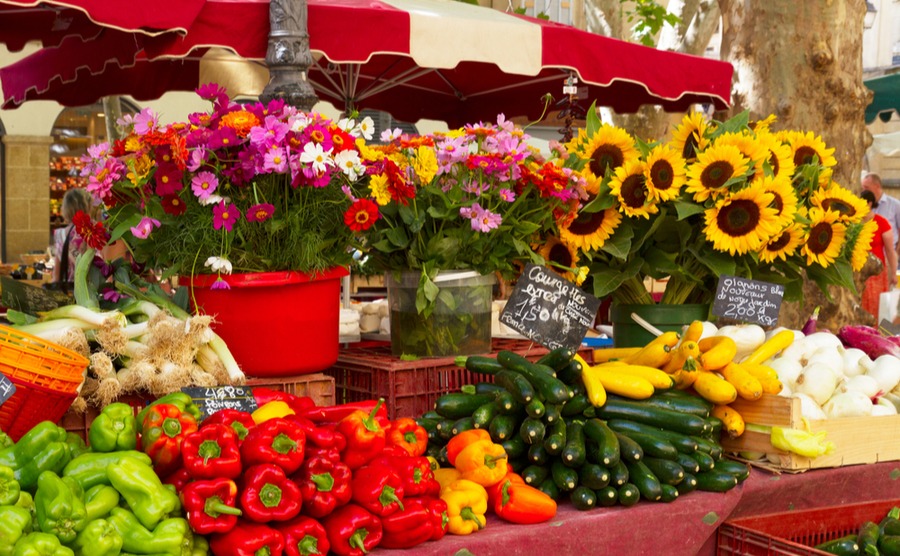Protests in France, as we all know, are not uncommon. It is perhaps one of the things that we give the country the most credit for. Unlike other countries, groups of people who feel aggrieved do not take things lying down. Whether their efforts eventually end with change or not. Striking and protesting appear to be part of the French psyche.
But this week, protests came in the somewhat surprising form of queues upon queues of tractors blocking motorways, access to supermarkets and forming blockades around big towns. So what is this all about? And, more importantly, how is it likely to end?
History of farming in France
A decade after the war ended and rationing ceased, the importance of farming in France was greatly recognised. Farmers were encouraged to increase their acreage, modernise their machinery and utilise chemical fertilisers. Of course, all of this came at a cost, something many farmers lacked. The one thing many farmers did not have at their disposal. So, the banks stepped in to help finance these improvements. Consequently, banks stepped in to finance these improvements, resulting in farmers becoming indebted to them. As a result, many farmers who didn’t embrace these ideas gradually went out of business, particularly those who only catered to a small number of consumers. They were often then compelled to find new careers, also having to relocate from rural areas to do so.
As a consequence of a less labour-intensive and more mechanised method of farming, food prices dropped. Arguably, so did food quality. But this was not at the time the biggest priority of the day. To manage the supply chain of increased agricultural output, French politicians actively encouraged sales through supermarkets and hypermarkets. But of course, supermarkets quickly saw the opportunity of a bigger cut in exchange for providing this intermediary service. They got greedy. Forcing the profit margins of those working in agriculture ever spiral downwards. Where French farmers looked not to comply, they were threatened with their products being replaced by overseas producers as they were more cost-efficient. In response, farmers formed the FNSEA (Fédération nationale des syndicats d’exploitants agricoles). However, this federation initially viewed negotiating with the government and attaining EU aid as more important than taking on the might of the big supermarkets directly.
Find homes in France via our property portal.

Farmers’ demonstration, blockade of the Langon toll plaza and snail mail operation on the A62 motorway Image: FreeProd33 via Shutterstock
The reason behind the farmers’ protests in France
The farmers are protesting as they argue they are not being paid enough for their produce. They are constrained by the increasing number of EU regulations enforced upon them. There are also increasing financial burdens caused by payment delays of government subsidies. If this isn’t bad enough, the final straw, was perhaps a proposed agricultural fuel duty hike. You might not agree with the farmers’ methods, but it could weigh heavily on those who are already struggling, with even more financial hardship. Not forgetting that the conflict in Ukraine has increased many costs associated with farming and has left some in financial dire straits, unable to even continue their profession and live at any level of reasonable standards.
Farmers argue that France’s farming sector, whilst heavily subsidised, is ill-equipped to compete with imports of produce from overseas. France’s neighbouring countries often do not face the same high levels of costs and constraints. The farmers argue that we will all benefit from the positive results of these protests in France. If the farmers cannot continue to produce what the consumers need, the cost of goods rises. Or worse, we face shortages of some basic food staples.
Learn more about living in France in our free guide
How are the protests in France taking place?
This issue came to a head at the beginning of the year, however, the initial farmers’ protests in France were not that disruptive. Signs in many villages were turned upside down overnight, as a quiet rumble of discontent – perhaps a sign of things to come. But over the last few weeks, the ante has well and truly been upped. It started with the forming of blockades and disrupting towns, outside the sites of the major buying hubs and supermarkets. But culminating this week in a large-scale “siege of Paris” in addition to large and impassable blockades forming along most national major road networks in France.
There have been scenes of burning tyres, digging up supermarket car parks and dumping large volumes of rubbish outside distribution centres. In turn, blocking access to distribution networks. But direct action like this cannot simply be ignored. It is the most effective way of causing the most disruption. After all, protests in France are not for the faint-hearted!
How we can show our support?
A recent report shows that support behind the agricultural protests in France, is at a much higher rate, than for example for the “Gilets Jaune”, with 9 out of 10 people supporting the cause. This is not surprising given the importance of agriculture and farming in France, particularly in rural areas. But also, because many people thankfully have the critical thinking to see that this will ultimately affect us all. However and wherever ultimately people choose to buy their food from, the production of many of our basic foodstuffs, derive from the same place, farms.
There are some simple ways that we can show support. Starting with buying everything possible from local farmers markets (marchés de producteurs), and where possible, favouring local producers. Even better, buying directly from the farms themselves. Which for those living in rural areas of France should not prove difficult at all. In addition, buying only in-season produce.
AMAP
If you can’t buy direct or don’t have the luxury of being able to visit the farmers markets you can sign up with AMAP (Association pour le maintien d’une agriculture paysanne). The Association was founded to “preserve the existence and continuity of local farms as part of a sustainable agriculture approach”. This system allows local consumers to directly support their local producers.
The way it works is via partnerships between citizens and an “AMAP” farm. In a fully contracted agreement between the two parties, in exchange for either financial return (sometimes in advance) or help to ensure production takes place, farmers bring their produce to a delivery location at regular intervals. The aim of this agreement ensure that consumer products haven’t passed through one of the six central buying hubs that dictate prices to farmers. In addition, it ensures that what consumers are buying has been produced to French standards as opposed to countries with possibly lower ones.

For those of you looking where to buy in France for the rural lifestyle, Aquitaine could be just the ticket.
Government Intervention so far
At the time of writing, both the Young Farmers unions and the FNSEA, called their members to suspend the protests in France. The prime minister, Gabriel Attal, not only pledged financial aid but also other additional measures. This includes an annual 150 million euros for livestock farmers and a ban on food imports treated with thiacloprid (a pesticide already banned in France). He promised better recognition of the importance of the profession. As well as returning value to farmers’ produce and to “protect [farmers] against unfair competition”.
In addition, the finance minister, Bruno Le Maire, promised that supermarkets would be audited for strict compliance with a law ensuring fairer pricing for farmers’ produce. There will also be a pause in France’s national plan for reducing pesticide use. These measures go even further than concessions already granted last week, including the withdrawal of the proposed fuel tax hike. The subject is sure to be one of the most discussed issues on the agenda as European leaders meet over the coming week at their summit.
You might also like:















